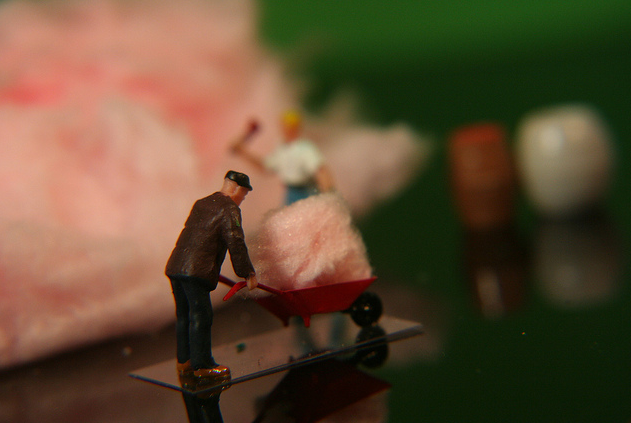
Peddling Candy to the Starving – Theatre Games
[fblike]
Let’s warm up with Zip Zap Zop! Yeah! “The class loves it!” I hear teachers say. And it’s true they do love this variation of Hot Potato. It’s fast, competitive and silly. And then they play… usually with no observation, personal ensemble variation or internal challenge guided by the teacher or class.
To me, this is the equivalent of serving cotton candy instead of soup or salad to start off a meal. “The class loves it!” And it’s true they do because they are starving and the candy is sweet, easy to digest (it just melts in your mouth no chewing even required) but the crash will come… usually right in the middle of the main meal – or in our case rehearsal or class.
I went to a large conference a few weeks ago and in a high-level workshop we started with Zip Zap Zop. I took a breath and hope for a variation, a way of playing this game that actually meant something. You can play Tag and have it mean something, easy, it is a clear picture of intention, play, focus and high-stakes depending on the expectations. It can be done.
But alas, whoosh, I was sucked into a vacuum, a bubble of time, to play Zip Zap Zop with nothing inside it or after it. An isolated bubble, as if play and joy were not allowed inside the work of technique or the act of mixing technique into the play would ruin the play.
We are all hungry for play, so hungry you could feed us cotton candy and we would thank you. This was overwhelming apparent in this workshop of higher education students, teachers and artists. Thank you laughter was quick and joyous as it raised up to the height of the game and then popped and dispersed. A film of “oh that was fun but now what” lay on top of the workshop… and then the instructors moved on. Sigh.
Too much and too often and we’ll sugar crash, we’ll develop a distaste for play because somewhere in our body we learn that play is not substantial enough to sustain us and we isolate play for bubble of time – disconnected from work or productivity.
Please, arts educators, let’s talk. This is not an anti-“theatre games” address. This is a pro-play plea. Make theatre games substantial in their joyous play. Require commitment. Expect observations of process. Raise the stakes. Pull the play thread through to the rest of the work, it is the spine of the work!
Let’s start talking: